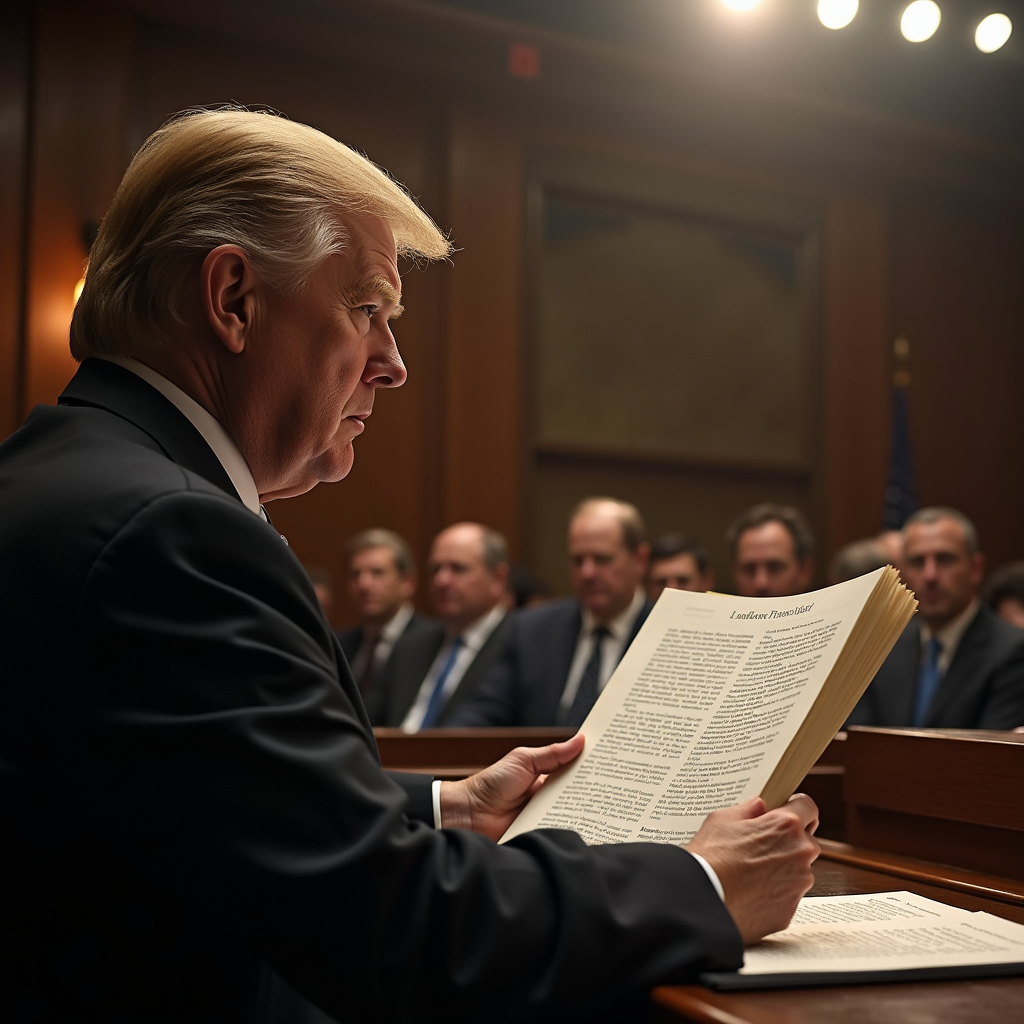This article is written by Gargi Lad. The article provides a detailed analysis of the landmark judgement of PepsiCo India Holdings Private Ltd. vs. Union of India (2024). It further elaborates on the facts of the case, issues and arguments presented by both parties. Subsequently, it also talks about the rationale behind the judgement.
Table of Contents
Introduction
An amendment is brought into any law that requires some changes to make the law more relevant. Amendments are a way to provide for a better statute or a set of rules that are of higher quality than the existing rules or laws. The Rules of Standards of Weights and Measures (Packaged Commodities) were amended in 2006 for a similar purpose. The amendment was brought in to provide a better set of rules that would be highly effective and would provide stricter guidelines. The rules would be mandatory for every manufacturer to ensure the smooth running of business and industry, along with ensuring that the manufacturer is practising fair trade. In an industry where people often resort to unfair means to establish trade and gain quick profit, it is the guidelines that keep them on track and within the purview of the judiciary and refrain them from utilising unfair means.
The laws and provisions are made to ensure the safety of the public through a good quality supply of goods by the manufacturers, hence, when huge companies default on following the guidelines, they are often not exempt, as it’s the public and their faith that are at stake. This case is a similar example of when a huge company with high turnover and a wide supply chain defaults on abiding by the rules that are laid down by the law. This case also provides an in-depth insight into the intricacies of compliance and aims to highlight the notability and value of clear and unambiguous statutory provisions concerned with the packaging of goods and consumer protection.
Details of the case
Name of the case : M/S. PepsiCo India Holdings Pvt. Ltd. vs. The Union of India and 3 Ors.
Case type: Writ Petition (Civil)
Case Number: 2024 SCCOnLine TS 438
Advocate for petitioner: N. Naveen Kumar
Advocate for respondent: P. Govind Reddy
Date of Order: 03.04.2024
Bench: Hon’ble Chief Justice Alok Aradhe and Hon’ble Shri Justice Anil Kumar Jukanti
Court: Telangana High Court
Background of the case
The petitioner company, Pepsi Co. India Holdings Private Ltd., was incorporated under the provisions of the Companies Act, 1956. It manufactures and supplies non-alcoholic carbonated beverages, packaged edibles and water through different distribution channels to its customers.
The petitioner, being in the business of trading packaged edibles and products, is bound to follow the provisions of the Prevention of Food Adulteration Act, 1954, the Standards of Weights and Measures Act, 1976 the Fruit Products Order, 1955, Amendment to Rule 6(1)(a) of the Standards of Weights and Measures (Packaged Commodities) Rules, 1977 (referred to as Rules 1977 further in the article), which was further amended in the year 2006, and the Standards of Weights and Measures (Enforcement) Act, 1985.
On 12th of January, 2007 the central government issued certain guidelines to implement the rules that were introduced in 1977. The Central Government wanted that efforts be made to spread awareness about the new amendments amongst all retailers, wholesalers and manufacturers. Further, in the guidelines that were issued, the government was of the opinion that investigational surveys can be taken as initial steps. After these surveys have been conducted, the concerned authorities have to be informed in the case of any deficiencies that have been noticed. The government was of the view that such investigational surveys will help the manufacturers and give them an opportunity to have appropriate weighing units and also to update their label declarations on packages. Further, it was mentioned that such surveys should continue to take place until the 30th of April, 2007.
Along with this, manufacturers were also allowed to affix their individual stickers declaring all the details of the consumer care cell so that they could utilise the existing packaging materials up to the 30th of June, 2007.
It was submitted by the respondents that seven notices were sent to the petitioner on 25th June 2007, 3rd July 2007, 4th July 2007, 5th July 2007, 9th July 2007, 31st July 2007 and 1st August 2007 because the provisions that have been given under Rule 6(1)(a) of the Rules that were brought in 1977 were being violated by the petitioners. The petitioner, through these notices, was informed of the contravention of Rule 6(1)(a) of the 1977 Rules and Section 39 and Section 33 of the Standards of Weights and Measures Act 1976 as well.

Thereafter, the Inspector, Legal Metrology, Hindupur, issued proceedings on 12th October 2007 against the company for noncompliance. Another notice was also issued to the petitioner on 18th October 2007 in which Inspector, Legal Metrology, Nalgonda informed the petitioner that for offences committed under Section 51 and Section 63 of the Standards of Weights and Measures Act 1976 and also under Rule 39 of the Rules of 1977, a case was registered against the petitioner under Section 72 of the Standards of Weights and Measures Act 1976 on 25th June 2007. According to Section 72, the case shall be tried in front of a magistrate and the maximum punishment shall be one year.
An interim order on 1st May, 2008 was issued by the bench of this court, which granted an interim stay on all further proceedings.
Facts of the case
In the present case, the petitioner, which is a company that manufactures non-alcoholic carbonated beverages, packaged drinking water and edibles, used packaged material prior to 31st December 2007. The respondent was of the opinion that the petitioner had violated Rule 6(1)(a) of the Standards of Weights and Measures (Packaged Commodities) Amendment Rules 2006 and wanted to initiate proceedings for prosecution against the petitioner company. The action that was taken by the respondent was on the grounds that the petitioner has been continuously negligent and hasn’t been complying with guidelines, even after numerous reminders were sent to him.
Even after the guidelines that were issued, PepsiCo allegedly did not comply with Rule 6(1)(a) and hence legal action was initiated against them. In response, a writ petition was filed by PepsiCo to seek exemption with regards to packaging requirements in the Telangana High Court. In order to support its argument, PepsiCo cited previous permissions that were given to them for using stickers and also the transition guidelines of the government. They also sought directions to be given to the respondents regarding abstaining from taking any action against the petitioner for packaging material used prior to 31st of December, 2007. Such material was used in consonance with Central Government directions dated 5th July 2007.
Issue raised
Whether or not the action of the respondents in initiating proceedings is arbitrary and unconstitutional?
Arguments of the parties
Petitioners
The petitioner had argued that the notices that were given to the petitioner company and the prosecution that was initiated have no sanctity as the petitioner company has been exempted from complying with Rule 6(1)(a) of the 1977 Rules. The petitioner prayed that the respondent should be directed not to proceed with any further action against the petitioner for non-compliance with the Rules of 1977.
Respondent
The respondent was of the opinion that the argument made by the petitioner regarding the exemption of the petitioner company from complying with the 1977 Rules is not valid as the notifications that have been issued by the Central Government are guidelines and do not have any statutory sanction. They further contended that the petitioner has a misconceived notion that he is being exempted from the same, and he shall be told to comply with the Rules.
Laws involved in PepsiCo India Holdings Private Ltd. vs. Union of India (2024)
Article 226
This article is provided under Part V of the Indian Constitution. Article 226 of the Indian Constitution gives the High Court powers to issue writs to protect the rights of citizens. It provides for protection against actions of the state that lead to violations of the fundamental or legal rights of the people.
Article 226 deals with all kinds of rights and does not limit itself to only fundamental rights. This article is a remedy for an infringement of the rights of any individual residing in India. The article grants the High Court the power to provide remedy to the person aggrieved against anyone. Here, the aggrieved can seek remedy for infringement against a person or even an authority like the government.
The right to constitutional remedies as guaranteed under Article 32 itself is a right, and hence a writ petition arising out of a violation cannot be denied by the Apex Court. Under Article 32, only the aggrieved person, whose fundamental right is violated, can approach the Supreme Court and seek remedy for the violation.

The High Court has the power to issue five kinds of writs, namely:
- Habeas Corpus: The writ of habeas corpus generally means “to have a body of.” This writ is issued to release a person who has been unlawfully detained or imprisoned. It is to be noted that this writ can be issued against public authorities and private individuals as well. One of the important criteria that needs to be fulfilled is that the detention that has taken place should be unlawful. When the writ of habeas corpus is issued, the court orders the person who has been detained before the court to examine the legality of his detention. This writ can also be filed by a stranger if it is in the public interest.
- Quo Warranto: The literal meaning of this writ is “by what authority.” The writ of Quo Warranto is only filed against judicial and quasi judicial authorities. It is issued by the courts to call any person who is holding a public office in order to show under what authority the person holding such office is. This writ focuses on preventing any person from holding any public office, which he is not entitled to.
- Mandamus: The literal meaning of the writ of mandamus is “We Command.” This writ is generally filed against a public body, an inferior court, a tribunal, the government and any corporation as well when they refuse to perform their duties. The writ of mandamus cannot be filed against a private individual. When the writ is issued, the public authority is ordered to resume its duties.
- Certiorari: The meaning of certiorari is “to certify.” In a situation where a lower court has passed a judgement or has passed an order and the higher court feels that such an order is beyond the powers that have been given to the court or if they have committed an error of law, a writ of certiorari is filed. This writ can also be filed when the lower court has not followed the principles of natural justice.
- Prohibition: This writ is usually issued by the Superior Courts to the inferior judicial bodies that are acting beyond their jurisdiction. The writ cannot be filed against legislative or private individuals. Rather, it is only issued against administrative, judicial and quasijudicial authorities. It is issued to prohibit the proceedings in a case that is still pending.
The petitioner in this case filed a writ petition under Article 226 of the Constitution of India, questioning the validity of the proceedings filed by the respondents, stating that they are illegal and arbitrary in nature.
Rule 6(1)(a) of the Standards of Weights and Measures (Packaged Commodities) Amendment Rules, 2006
The Rules of Standards of Weights and Measures (Packaged Commodities) were framed using the powers that have been granted to the Central Government by the Standards of Weights and Measures Act, 1976, to make rules in relation to the provisions of the same. This power to frame the rules has been granted under Section 83(1) of the Standards of Weights and Measures Act, 1976. Further, Section 83(2) of the Standards of Weights and Measures Act, 1976, provides a list of matters for which the government has been given powers to make rules.
Rule 6 of the Standards of Weights and Measures (Packaged Commodities) Rules deal with declarations that have to be made on every package. Rule 6(1)(a) specifically states that the name and address of the packer and the manufacturer/importer have to be mentioned on the package. If there is a separate entity for the manufacturer and packer, they both must have their names mentioned separately. Where there is no mention of who has manufactured or packed the specific product, it is assumed that the name and address specified on the package are those of the manufacturer and the person who packs. As per the 1977 Rules, when the packages contain food articles or edible materials instead of this clause, the requirements of the Food Safety and Standards Act, 2006, and the rules made for the same will apply.
Rule 2(h) of the 1977 Rules also gives the definition of manufacturer. A manufacturer is a person, a firm or a Hindu undivided family that manufactures or produces any packaged commodity and puts any mark on the said packaged commodity that is not produced or made by the person, claiming the commodity to be made or packaged by him. Further, the definition of packer was also given in Rule 2(k) of the 1977 Rules. A packer is considered to be a person who pre-packs any kind of commodity, wholesale or retail.
Standard of Weights and Measures Act, 1976

This Act extends to the whole of India and was introduced to regulate interstate trade or other goods that are sold by weight and also to establish certain standards relating to measures and weights. This act was introduced to amend, upgrade and modernise the system of weights and measures and also to replace the Standards of Weights and Measures Act, 1956. The Central Government wanted to replace the 1956 Act in order to remove any deficiencies and also to bring the existing laws in line with international trends.
Section 33 of the Standard of Weights and Measures Act, 1976
According to this section, no person is allowed to issue any price list or any other document nor can he make an announcement regarding any charge or price for any good or service to which this part applies. They are also not allowed to express any quantity or dimensions nor can they publish any advertisements in relation to such goods and services. This can only be done when it is in accordance with the standard units of weights and measures.
Section 39 of the Standard of Weights and Measures Act, 1976
According to Section 39(1) of the Standards of Weights and Measures Act, 1976, until and unless a packaged commodity has the identity of the commodity, the net quantity in accordance with the standard units of weight and measure, and the unit sale price and sale price of the package, no person is allowed to make, manufacture, deliver, sell or distribute such commodity. This section further lays down that the name and address of the manufacturer or packager should be given on the package. As per Clause (3) of this Section, every package should have a statement of the net quantity of each serving, in case the number of servings has been given on the package.
Also, Section 39(5) of the Standards of Weights and Measures Act, 1976 In case of any undue proliferation of measures or weights that would impair the ability of any consumer to make a comparative assessment of the prices, then the central government can instruct the manufacturer to distribute the commodity in accordance with such standard quantities. Any commodity that has been filled to less than the prescribed capacity cannot be sold or delivered by any person. This can only be allowed if it is proven that it was done to protect the contents of the package.
Section 51 of the Standard of Weights and Measures Act, 1976

This section lays down that, except if any change has been made for the correction of any error, if any person tampers with or changes the reference, secondary or working standard, they shall be punished with imprisonment, which can extend up to a period of two years. Further, a fine can also be imposed, which can extend to five thousand rupees.
Section 63 of the Standard of Weights and Measures Act, 1976
As per Section 63 of The Standards of Weights and Measures Act, 1976, during any inter-state trade or commerce, any person who sells or delivers any packaged commodity that is not in accordance with the provisions that have been laid down under this Act or any rule that has been made for such implementation can be fined five thousand rupees or less, and for any subsequent offence, the person can be imprisoned up to five years.
Section 72 of the Standard of Weights and Measures Act, 1976
As per Section 72(a) of the Standards of Weights and Measures Act, 1976, only when a complaint has been made by the Director or any person who is aggrieved or by any authorised officer can courts take cognisance of any offence for which the punishment has been given under this Act. Also, according to Section 72(c), an offence has to be tried summarily by a magistrate that is punishable under Section 50, Section 52, Section 53, Section 56, Section 58, Section 60, Section 61, Section 63, Section 64, Section 65, and Section 66 of the Standards of Weights and Measures Act, 1976. Also, if any person has been convicted of any offence that has been tried under this section, a sentence of imprisonment can be passed but such punishment should not exceed one year.
Section 83 of the Standard of Weights and Measures Act, 1976
Section 83 of the Standards of Weights and Measures Act, 1976, grants power to the Central Government to make rules or bring in guidelines in order to carry out or enforce the provisions that have been laid down under the Standards of Weights and Measures Act, 1976. If required, the Central Government may also impose a fine, which can extend up to Rs. 2000 if there is any breach of the rules by the ones concerned (i.e., manufacturers and retailers) that has been made by the Central Government.

Further, a list has been given under Section 83(2) of the said Act on which the Central Government can make rules. Some of the matters on which rules can be made are:
- Supplementary, derived or special units of weight and measure and standard symbols or definitions as prescribed by the General Conference on Weights and Measures.
- Multiples and submultiples of physical constants and ratios or coefficients in relation to units of weight or measure
- The manner in which the denomination of decimal multiples and submultiples shall be written.
- Regarding periodical intervals in which certification of objects that have been mentioned under Section 16 in subsections 1 and 2 shall be done to check their accuracy.
- The manner and condition in which an object or equipment, as per given under Section 15 and Section 16 of the Standard of Weights and Measures Act, 1976, shall be kept.
- The manner and condition in which every reference standard, secondary standard or working standard shall be kept.
- The place of verification and authentication of the above mentioned reference, secondary and working standard, and the manner in which such verification or authentication shall take place. Also, the authority that will conduct such verification and authentication.
- Custody of the reference, secondary and working standards.
- In relation to weights or measures, all the physical characteristics of materials and equipment, the performance of equipment and its configuration, tolerances, or anything related to methods or procedures of tests.
- Maintaining registers and records by persons mentioned under Section 35;
- Regarding the conditions under which non-standard weights or measures may be manufactured for export and any limitations or restrictions on the same.
- If any of the commodities are subject to natural decay, determine the manner in which they should be disposed of.
- Custody, under which every reference, working or secondary standard has to be kept.
- Regarding which authority should approve the models and the number of models, drawings and other information that are to be submitted for approval of the model;
- For the testing of a model, what are the prescribed conditions under which the testing is to be done
- The manner in which the model’s number and certificate shall be written on every weight or measure
- The manner in which the contents of a specific package have to be declared
- Classes of weights and measures that fall under the first or second category
- The capacity up to which a specific package is required to be filled
- In the net contents of a packaged commodity, what are reasonable variations that may be due to the method of packing or ordinary exposure
- How the special seal by which weights or measures of the first category shall be stamped
- How are periodical returns submitted by every manufacturer, dealer or other person in a State
- The manner, format and limitation of time for applications for inclusion of a name in the register of exporters and importers of weights and measures shall be made;
- The registration period of an exporter or importer of weights or measures, and when shall it be renewed
- The minimum qualifications for admission to the institute, the courses and curriculum, along with the period of training at the institute and the range of fees to be collected.
- any other matter that is required to be, or may be, prescribed.
Judgement in PepsiCo India Holdings Private Ltd. vs. Union of India (2024)
The Court referred to Rule 6(1)(a) of the 1977 Rules, which states that the name, address, telephone number and email address of the person who can be contacted in case a consumer complaint comes up should be mentioned on every package by the manufacturer. The High Court was of the opinion that in order to exempt a manufacturer from a specific rule or act, the existence of a provision in the said act or rules should be there. However, in the present case, there is no mention of any provision under the 1977 Rules or the relevant act. The court further mentioned the guidelines that were issued by the government and stated that compliance had to be done with the said guidelines until April 30, 2007.

The Court stated that the provisions of the Act were amended, which was notified with effect from 17-7-2006 and therefore, the Central Government had issued guidelines to ensure a smooth transition in the implementation of the 1977 Rules, and by way of an amendment, new provisions were incorporated. Further, the guidelines only provided that efforts might be made to give wide publicity to the changes made in the 1977 Rules to spread awareness amongst manufacturers/wholesalers/retailers.
It was also stated in the guidelines that initial enforcement steps might only arise in investigational surveys and the deficiencies noticed should be brought to the notice of the manufacturer concerned so that they could update their label declarations and the seller might put in place appropriate weighing equipment. The said steps were directed to be taken till 30-4-2007 and it was expected that in the said initial period there would be no prosecution.
Hence, the order that was given on 12th January 2007 does not in any way exempt the petitioner from Rule 6(1)(a) of the 1977 Rules and the argument raised by the petitioner is not valid. The court disposed of the writ petition but also stated that in one of the cases, prosecution has already been launched against the petitioner. The Court directed the government authorities to keep in mind the guidelines issued by the Central Government when they deal with the notices that were given to the petitioner, to which the petitioner has responded.
Rationale behind this judgement
The court further observed that the guidelines that were issued by the government ought to be complied with until the 30th of April, 2007, after which they will face consequences.
The court looked into Rule 6(1)(a) of the 1977 Rules in order to decide whether the petitioner was liable to be exempted or not, but after a thorough reading of the rules, they opined that it does not in any way exempt the petitioner. The bench was quick to notice and decide that the order that was passed on 12th January 2007 is valid and the contentions of the petitioner are invalid.
Analysis of the case
This case of PepsiCo India Holdings Pvt. Ltd. vs. Union of India in relation to packaging and consumer protection highlights the importance of complying with the statutory provisions and also provides an understanding of the complexities of complying with different laws that have been laid down. The facts of this case and the judgement that was delivered also highlight the importance of protecting consumer interests and further highlight the legal consequences that one could face in case of non-compliance. The judgement that has been delivered by the Telangana High Court has clearly laid down that one cannot be exempted from the mandatory statutory requirements on the basis of guidelines. This case also lays importance on the fact that manufacturers should always be aware of the latest developments and should also majorly focus on complying with them.
Conclusion
This case has stood up, reflecting the need to practice fair trade and follow guidelines that are issued by the central government. It also demonstrates the consequences of non compliance with guidelines. It has been seen and upheld in varied cases that following the guidelines is important and necessary for upholding the principles of practising fair trade. In the judgement, it was said that all the procedures that are required for following the mandatory statutory guidelines have to be followed. Further, the judgement stated that the party has to work diligently towards meeting all the requirements and if any notice has been served, then it is the duty of the person to reply to the same. It has also been observed by the court that manufacturers and industries that operate on a larger scale often tend to disobey guidelines and not follow the protocols laid down in the statute. This can further lead to different issues.

For instance, in the above case, several notices were issued to the manufacturer because there was non-compliance on their behalf. And non compliance would often lead to legal proceedings, which, in reality, are more tedious than actual compliance with rules. The case holds importance for the consumer as it is their right to know what is in the product and hence the packaging should display the same. The guidelines that were issued by the Central Government were aimed at transparency between the packer/retailer and the consumer. Hence, when PepsiCo did not comply with the guidelines, they were sent notices and asked to comply with them. This case does not merely rely on fair trade practices but also on consumer protection and the rights of the consumer.
Frequently Asked Questions (FAQs)
Why are declarations required for packaged commodities?
The declarations on any packaged item or commodity are a mandate to ensure that the product is of good quality and is from a trustworthy source. It is done to ensure the accurate handling of goods and to uphold the principles of fair trade practices.
Which rule did Pepsi Co. allegedly not comply with?
Pepsico. had allegedly violated Rule 6(1)(a) of the Standards of Weights and Measures (Packaged Commodities) Rules, 1977.
Why did the Central Government issue guidelines in 2007?
The Central Government had issued guidelines to implement the 1977 Rules and also to spread awareness about the said rules amongst manufacturers as to avoid further complications.
What does the judgement that has been delivered by the court highlight?
The judgement that has been given highlights the importance of complying with the rules and regulations for packaging that have been laid down. It also upholds consumer protection and welfare by keeping a strict eye on the manufacturers and having them within a purview bound by law.
References
- https://www.scconline.com/blog/post/2024/04/30/pepsico-not-exempted-from-complying-with-rule61a-of-standards-of-weights-measures-packaged-commodities-rules-1977-telhc-legal-news/amp/
- https://www.livelaw.in/high-court/telangana-high-court/telangana-high-court-pepsico-exemption-packaging-requirements-61a-packaged-commodities-rules-256331
Students of Lawsikho courses regularly produce writing assignments and work on practical exercises as a part of their coursework and develop themselves in real-life practical skills.
LawSikho has created a telegram group for exchanging legal knowledge, referrals, and various opportunities. You can click on this link and join:
Follow us on Instagram and subscribe to our YouTube channel for more amazing legal content.
 Serato DJ Crack 2025Serato DJ PRO Crack
Serato DJ Crack 2025Serato DJ PRO Crack










 Allow notifications
Allow notifications


